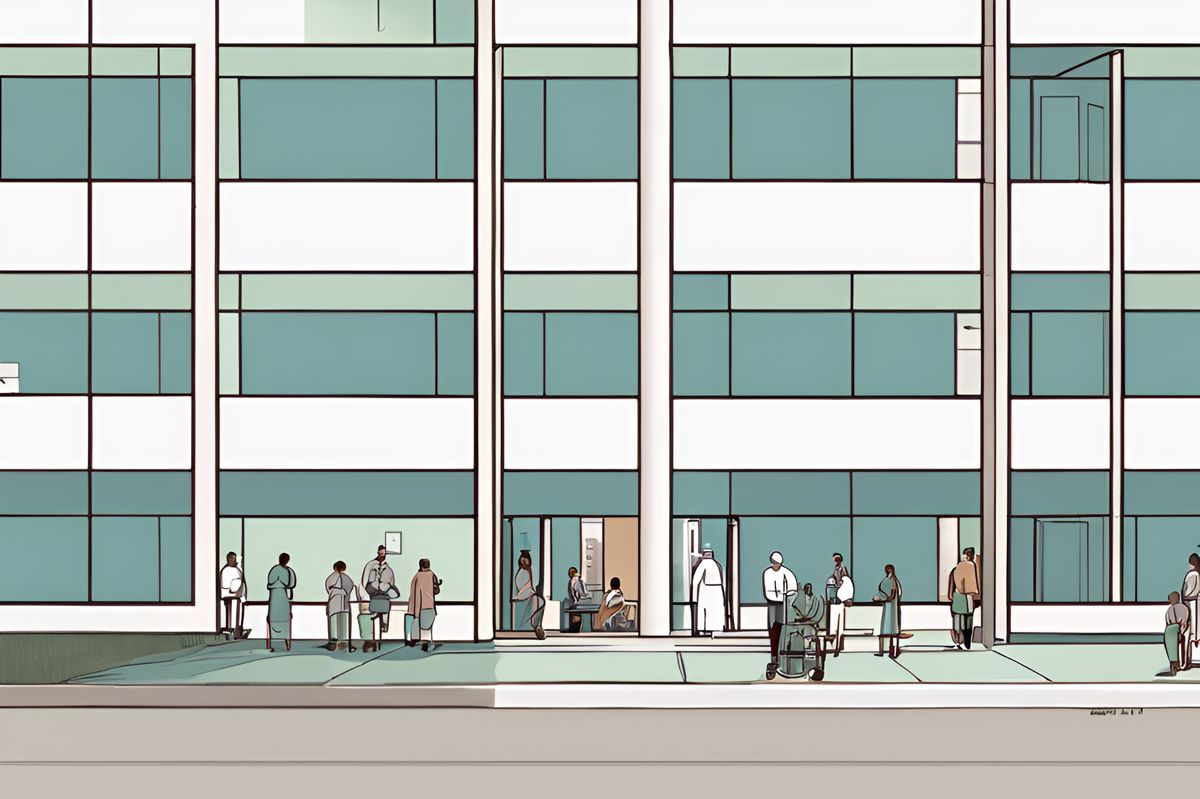Leeds is boldly aiming to eliminate new cases of HIV, tuberculosis, and hepatitis by 2030 through a groundbreaking opt-out testing initiative at Leeds General Infirmary and St James’s University Hospital. Supported by the Department of Health, this program is part of the Fast-Track City agenda, ensuring that patients are screened during emergency care to swiftly diagnose and treat these infections.
What is Leeds’ strategy for ending HIV, TB, and hepatitis epidemics by 2030?
Leeds is committed to eradicating HIV, tuberculosis (TB), and hepatitis through expanded opt-out testing in emergency care at Leeds General Infirmary and St James’s University Hospital. This initiative, part of the Fast-Track City agenda, aims to diagnose and treat these infections rapidly, reducing transmission and ultimately achieving zero new cases by 2030.
Leeds’ Commitment to Ending Epidemics
As part of the Fast-Track City initiative, Leeds has embarked on an ambitious plan to eradicate the new cases of HIV, tuberculosis (TB), and viral hepatitis by the end of this decade. The city, aligning with global efforts, has implemented an expanded opt-out testing program in two of its key hospitals—Leeds General Infirmary and St James’s University Hospital. Commencing last month, patients aged 16 and above undergoing blood tests within emergency care settings are concurrently being screened for HIV, hepatitis B, and hepatitis C, with the provision to opt out.
The Department of Health and Social Care has backed this Leeds-based initiative, funding it for a minimum span of one year. This program is not an isolated endeavor but forms part of a larger, nation-wide campaign aimed at identifying undiagnosed individuals, providing them with essential treatment and care, and curtailing new transmissions. The overarching objective is to facilitate long, healthy lives free from the burden of these infectious diseases.
Progress Report and Community Engagement
A report detailing Leeds’ progress since embracing its Fast-Track City status will be discussed at the upcoming council’s executive board meeting at Civic Hall. The city’s strides are noteworthy; Leeds has attained the international ’95-95-95′ target set by the United Nations. This entails 95 percent of people living with HIV have been diagnosed, 99 percent of those are under treatment, and 98 percent have achieved viral suppression, rendering them incapable of transmitting the virus.
Leeds’ engagement extends beyond healthcare settings into the heart of communities. A community grants program, operational since February and marking a year since Leeds became a Fast-Track City, aids local groups in articulating their lived experiences, particularly around the stigmas and discrimination associated with HIV, TB, and hepatitis. Managed by Leeds City Council, BHA Leeds Skyline, and MESMAC, grants up to £700 have been allocated to innovative projects. These have ranged from podcasts discussing life with HIV, to a refugee community choir’s song for World Aids Day, as well as a poster campaign for places of worship, an LGBT+ youth group’s quilt project, and a knitting group crafting bears for national HIV testing week.
BHA Leeds Skyline will feature these initiatives at a celebration event, showcasing solidarity and progress within the city. For more information, individuals can reach out to BHA Leeds Skyline through their website.
Leadership Perspectives on Fast-Track City Goals
Councillor Fiona Venner, Leeds City Council executive member for equality, health, and wellbeing, has expressed conviction in the collective effort to reach the zero target for infections, deaths and stigma by 2030. She highlights the enhanced testing at the LGI and St James’s as a pivotal stride towards realizing these targets, by enabling the identification and support of undiagnosed individuals.
Dr. Sarah Schoeman, from Leeds Teaching Hospitals Trust and Chair of the Leeds Fast-Track City Leadership Group, emphasizes the necessity of normalizing blood-borne virus testing. The routine testing initiative within the emergency departments represents a significant stride towards the city’s public health goals.
Pesha Thornton, Programme Lead at BHA Skyline, commends the community grants for empowering individuals and groups to confront stigma and discrimination, thereby elevating their voices and experiences. The forthcoming Fast-Track City event hosted by BHA Skyline will celebrate these community efforts and share the work from partners across Leeds and West Yorkshire.
For further details on the executive board report, visit Leeds Council and democracy (agenda item seven), and for more on the community grants program, Fast Track Cities Leeds Community Grants.
To explore more about Fast-Track Cities, visit the Fast-Track Cities website.
Notes to Editors
A list of resources and contacts for further information includes:
- BHA Leeds Skyline for support regarding HIV in Leeds: contact Jeni Hirst at 0113 2449767 or via email at jeni@thebha.org.uk.
- Yorkshire MESMAC for HIV testing and related services: contact Tom Doyle at 0113 244 4209 or t.doyle@mesmac.co.uk.
- Info on HIV testing in Leeds can be found at www.startswithme.org.uk and www.mesmac.co.uk.
- Leeds Sexual Health partnership details are available via lch.comms@nhs.net.
- Fast-Track Cities Leeds updates are available on Twitter @LeedsFTC or by email at fast-track-city@leeds.gov.uk.
- World AIDS day information can be accessed at www.worldaidsday.org.
- NHS England research on the opt-out testing program can be found here.
- For further announcements and research details, visit GOV.UK.
ENDS
For media inquiries, please contact:
Leeds City Council communications and marketing,
Email: communicationsteam@leeds.gov.uk
Tel: 0113 378 6007
- Leeds is implementing an opt-out testing initiative at Leeds General Infirmary and St James’s University Hospital to eliminate new cases of HIV, tuberculosis, and hepatitis by 2030.
- The program is supported by the Department of Health and is part of the Fast-Track City agenda, aimed at rapid diagnosis and treatment during emergency care.
- Patients aged 16 and above will be screened for HIV, hepatitis B, and hepatitis C when undergoing blood tests, with an option to opt out.
- Leeds has achieved the UN’s ’95-95-95′ target for HIV, indicating significant progress in diagnosing and treating those living with the virus.
- Community engagement is fostered through grants for local projects addressing stigma and discrimination related to these infections, promoting inclusivity and awareness.
